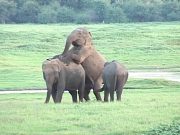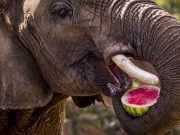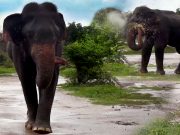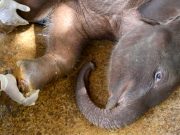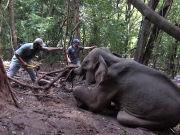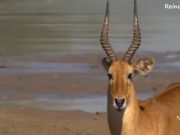Sri Lankan (Elephas maximus Maximus) are threatened primarily by habitat loss and human-elephant conflict. In addition to establishing protected areas and corridors for wildlife, empowering farmers to protect their crops is crucial for elephant conservation. Elephants can habituate to artificial deterrents; hence natural biological alternatives are intensely interested.
Asian elephants are the continent’s largest terrestrial mammals. There are three subspecies of an Asian elephant.
- The Indian,
- Sumatran and
- Sri Lankan.
They can reach 6.4m in length and 3m at the shoulder and weigh as much as 5 tons. The Sri Lankan elephant is physically the largest of the subspecies and the darkest in colour. The Sri Lankan elephant population is now primarily restricted to the dry zone in the north, east and southeast of Sri Lanka. Elephants are present in Udawalawe National Park, Yala National Park, Lunugamvehera National Park, Wilpattu National Park and Minneriya National Park but also live outside protected areas.
Elephants were a common element in Sinhalese heraldry for over two thousand years and remained so through British colonial rule. The coat of arms and the flag of the Ceylon Government from 1875 to 1948 included an elephant. Even today, many institutions use the Sri Lankan elephant in their coat of arms and insignia. An essential cultural symbiosis has existed between the elephant and humans for over two thousand years – no religious procession was complete without its entourage of elephants.
Elephants travel distance for various reasons with their herd led by a female. Humans have cultivated and acquired land for housing and business purposes. Therefore, these humans build barriers blocking the elephant corridors, leading to severe human-elephant conflict.








